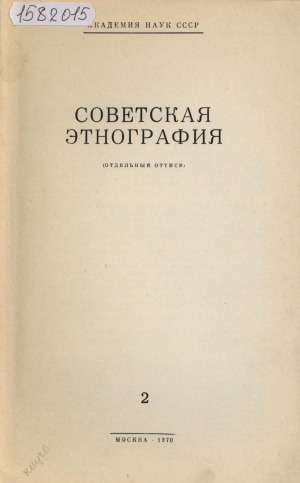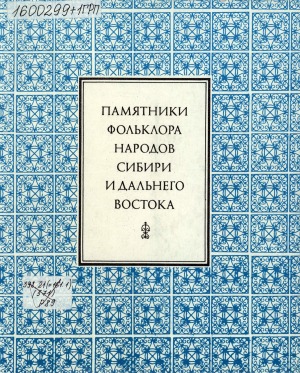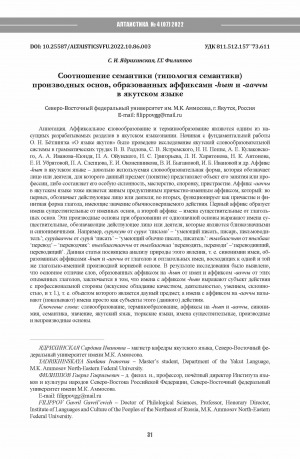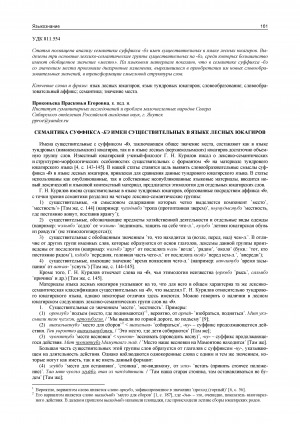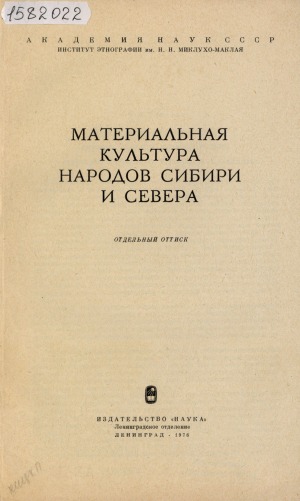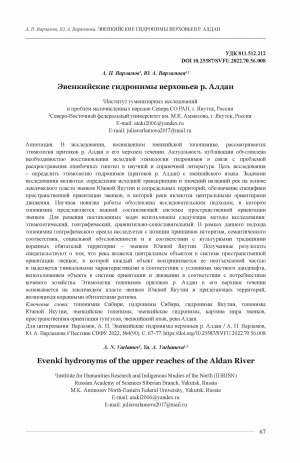
Конверсионные образования имен прилагательных в якутском и эвенкийском языках = Conversion of Yakut and Evenki Adjectives
Статья в журнале
Русский
811.512.157'367.623; 811.512.212'367.623
конверсия ; семантика; якутский язык; эвенкийский язык; адъективация; conversion; semantics; Yakut language; Evenki language ; word formation ; adjectivization
Северо-Восточный гуманитарный вестник. – 2025. – 1 (50) (С. 164-173)
The paper presents a comparative analysis of word formation in Yakut and Evenki languages, with adjectives being the main focus. The structure of the adjective system in Turkic and Tungusic languages has not been fully understood yet. In these languages, adjectives can be derived from nouns, verbs, numerals, and adverbs. In modern Yakut language, new words are derived from stems of other word classes more actively than in Evenki language. Words formed this way are called converse words. They can be formed by derivation with an affix or zero derivation. Words conversed from roots consist of one morpheme and are not semantically connected to other words. In contrast, derivatives have several parts and are semantically connected to other words. The purpose of the study is to understand structure and semantics of conversion of adjectives as a way to form new words in Yakut and Evenki languages. It is the first attempt to systematize results of a complex analysis of conversion as a universal way of word formation illustrated by Yakut and Evenki adjectives. The results of the analysis show that despite universal character of conversion some features depend on the typological characteristic of a language. In Yakut and Evenki languages adjectives can be classified as various forms, from simple to complex. In contrast to nouns and verbs also present in vocabulary of both languages, adjectives have a specific morphological structure that differentiates them from other word classes.
Андреева, Т. Е. Конверсионные образования имен прилагательных в якутском и эвенкийском языках / Андреева Т. Е., Дьячковский Ф. Н. ; Институт гуманитарных исследований и проблем малочисленных народов Севера // Северо-Восточный гуманитарный вестник. - 2025. - N 1 (50). - С. 164-173. - DOI: 10.25693/SVGV.2025.50.1.012
DOI: 10.25693/SVGV.2025.50.1.012
- Языкознание. Филология. Художественная литература > Языкознание и языки. Лингвистика > Якутский (саха),
- Языкознание. Филология. Художественная литература > Языкознание и языки. Лингвистика > Эвенкийский язык,
- НАУКА ЯКУТИИ > ЯЗЫКОЗНАНИЕ. ФИЛОЛОГИЯ. ЛИТЕРАТУРОВЕДЕНИЕ. ХУДОЖЕСТВЕННАЯ ЛИТЕРАТУРА > Языкознание и языки. Лингвистика,
- КНИГАКАН > Все народы > Эвены (тунгусо-маньчжурская группа языков) > Языкознание.
Войдите в систему, чтобы открыть документ

